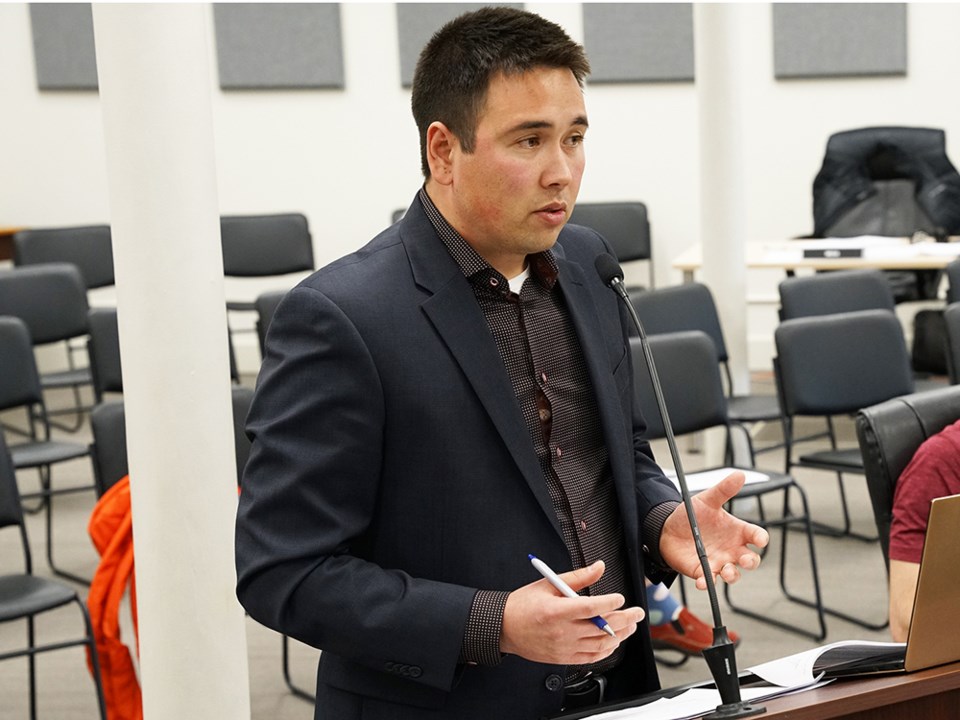City of Powell River is edging nearer to completing its 2022 to 2026 financial plan, which is due to be submitted to the province by May 15.
At the March 24 finance committee meeting, chief financial officer Adam Langenmaier outlined the second draft of the plan. He said the council-approved direction is for a 4.1 per cent tax increase overall.
“That recommendation has not been adjusted since the preliminary financial plan back in November 2021,” said Langenmaier. “That is what has formed the basis of this financial plan as there has been no alternative direction.”
Langenmaier said the taxation increase over 2021 is $802,176, which represents the 4.1 per cent increase.
According to a written report for the finance committee from Langenmaier, for the average single-family dwelling, assessed at $535,928, total city taxation and utilities charges would be $3,348.53, which is a change of $207.47 over 2021. The report stated that if the impact of removing garbage tags is considered, the percentage change would be 1.6 per cent for the average single-family dwelling.
Langenmaier said within the borrowing there is the money allocated for fall borrowing of $5 million for the consolidated wastewater treatment plant, which adds $36.17 tax on the average home. Total cost for the $20 million in borrowing for the plant is $129.53 for the average single-family dwelling.
Langenmaier said this budget includes the final reduction in the city flat tax, which will be set at $50 in perpetuity.
The report included a change in water rates. In 2022, the rate will increase from $318 in 2021 to $330, if the plan is adopted.
Looking at expenses, one factor that has increased significantly is fuel. In draft one of the five-year plan, the expenditure was forecast at $462,100, and in draft two, it is budgeted at $547,511. There is also money set aside for reconciliation initiatives, with $50,000 being budgeted.
When comparing revenue and expenses, the city is in a surplus position, according to Langenmaier.
In draft one of the plan, a surplus of $1.3 million had been identified. However, with additional expenses having been identified between drafts one and two, the balance has been amended to $909,673.
According to the report, one of the main contributing factors to the surplus is the COVID-19 safe restart grant, which was allocated to the city by the provincial government after the onset of the pandemic.
Langenmaier is also recommending that the city return to its traditional tax penalty schedule. Typically, the property tax deadline is July 2, whereupon a 10 per cent tax penalty is assessed. With the onset of COVID-19, the city relaxed its tax penalty date, but Langenmaier recommended that the city return to its normal schedule.
“That seems to be what is occurring in most of the province,” said Langenmaier.
There are still funds remaining in the COVID-19 safe restart reserve of $652,565, which represents 22 per cent of the original amount received of $2.9 million.
Langenmaier said with surplus, the city had two options. One was a reduction of taxes and the other was making an increase to reserve contributions. The city faces uncertainties such as the wastewater plant, the future of the Catalyst Paper Tis’kwat mill, possible fire hall construction and the aging Powell River Recreation Complex, he added.
“It’s been another challenging budget to present,” said Langenmaier. “There are still so many lingering unknowns with COVID-19 and with what is happening with fuel prices, it has driven a level of uncertainty into this budget.”
Langenmaier said all the information is available online for the public at powellriver.openbook.questica.com.
Mayor wants summary
Mayor Dave Formosa recommended that when tax notices are sent out, there is an accounting on a single sheet of paper that shows the increases not only for the city, but for the regional district, regional hospital district and school district, so taxpayers don’t look at the total and think it’s all the city.
“They are going to see quite a bit of an increase in the regional district’s bill this year – probably in everybody’s bill,” said Formosa. “I don’t think our people in the finance department deserve getting hit for all of that because some people get upset.”
Councillor CaroleAnn Leishman said as for the operating surplus, as much as taxpayers would like a tax reduction, she said it is more responsible to contribute to reserves, adding that she favours that option.
Councillor George Doubt, chair of the finance committee, said the tax rate increase is reasonable, considering very little of the increase actually contributes to services the city provides.
“The debt of the city is a significant part of that,” said Doubt, adding that the unappropriated surplus is best left where it is. He said concentrating the money in reserve would be wise.
As far as the tax penalty schedule is concerned, Doubt said the city can go back safely to assessing penalties after July 2 if people don’t pay by that date.
Councillor Jim Palm asked if the COVID-19 funds had any restrictions and chief administrative officer Russell Brewer indicated there were none. Palm recommended using some of those funds to reduce taxes by one per cent.
The committee gave unanimous consent that staff receive draft two of the financial plan, that staff incorporate any changes, that staff prepare the city’s 2022 to 2026 financial plan bylaw, and that the city return to the historic property tax penalty schedule.



.jpg;w=120;h=80;mode=crop)

.jpg;w=120;h=80;mode=crop)